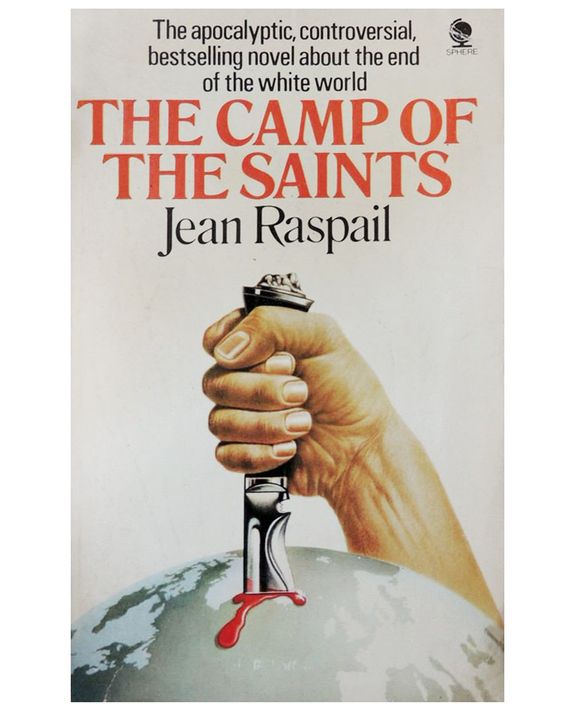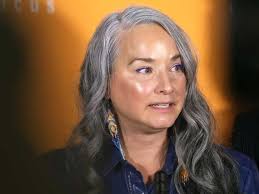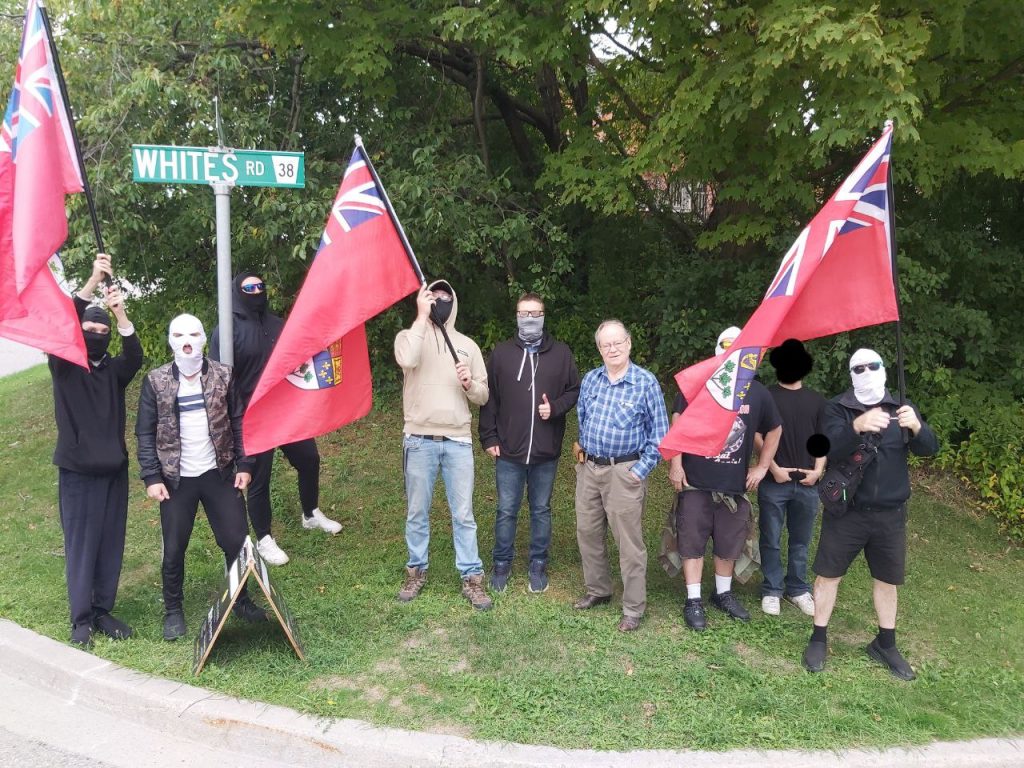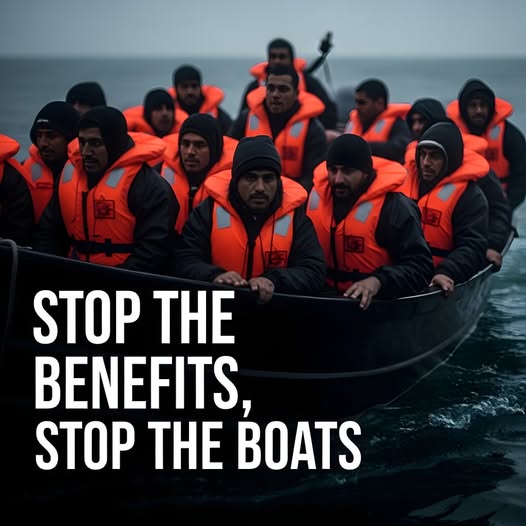The Twilight of the White Ethnicities
Paul Craig Roberts • Thursday, September 18, 2025 • 1,600 Words
By closing the border Trump Has Delayed for a Few Years the Destruction of White Ethnic America, but He Is Unable To Prevent a World in Which There Are No White Ethnic countries.
Why Hasn’t Biden prosecutor Jack Smith Been Arrested and Indicted? The Answer is that Republicans Are Wimps. They are scared to actually fight.
The Democrats Tried to Indict and to Destroy the Entire Republican Party.
Will the Wimp Republicans do anything about it?
Scope of FBI probe into Trump revealed:
The Biden-era investigation into alleged 2020 election interference turned out to have been far wider than originally thought
https://www.rt.com/news/624822-trump-fbi-probe-republicans/
At least 92 Republican-linked people and organizations were the focus of a Biden-era FBI investigation into alleged attempts by Trump to overturn the 2020 election, newly unclassified files show.
The trove of documents was unveiled by Senate Judiciary Committee Chairman Chuck Grassley (R-Iowa) during a panel hearing on Tuesday.
The probe, dubbed “Arctic Frost,” kicked off in April 2022 and was jointly conducted by the FBI and other agencies, becoming the foundation for former Biden special counsel Jack Smith to bring criminal charges against now-President Donald Trump.
The investigation focused on an alleged “multifaceted conspiracy to overturn the results of the 2020 presidential election so that former President Trump could remain in office,” the documents show.
The records reveal that “Arctic Frost” was much broader than just an electoral matter” and that the probe promptly “expanded to Republican organizations,” including the late Charlie Kirk’s Turning Point USA group. Kirk was killed on September 10, 2025, while speaking to an audience at Utah Valley University. One thousand of the students were accessories to Kirk’s murder, because they protested his appearance on campus, thereby creating a climate of hate that resulted in Kirk’s murder. We should despise those students even though they are the typical products of American education today. American education produces anti-Americans.
Senator Grassley reports that some of the Republicans “the FBI sought to place under political investigation included the Republican National Committee, Republican Attorneys General Association, and Trump political groups.” In other words, it was an effort to destroy the Republican Party.
“Arctic Frost wasn’t just a case to politically investigate Trump,” the senator reported. “It was a vehicle by which partisan FBI agents and Department of Justice prosecutors could achieve their partisan ends and improperly investigate the entire Republican political apparatus.” Grassley should have added that the corrupt “investigation” had the full support of the American whore media.
Shortly after the release of the documents, Trump took to Truth Social to slam Smith and the Biden administration over their corrupt investigation.
“They tried to force Charlie [Kirk], and many other people and movements, out of business. They Weaponized the Justice Department against Sleepy Joe Biden’s Political Opponents, including ME!” Trump wrote.
Smith resigned from his role ahead of Trump’s inauguration but defended his politically motivated probe and his decision to bring the false charges. Trump has repeatedly claimed that the ultimate purpose of the investigation was to derail his 2024 presidential bid. Actually, the purpose was to imprison Trump and to destroy the Republican Party. But this is too scary for even Trump to acknowledge.
Aleksandr Dugan, one of Russia’s top intellects, concludes that “Charlie Kirk’s murder is the beginning of a liberal, globalist attack against all ordinary people.” https://www.rt.com/shows/rt-interview/624612-dugin-charlie-kirk-murder-violence/
Dugin is correct. Every Western European government has turned against its ethnic base because it is white and, thereby, racist. The members of the Western governments were taught that they are racists by their elite universities. Western governments no longer protect their own ethnic citizens. The governments protect the immigrant-invaders. In Britain and Sweden, and I believe the entirety of Western Europe, immigrant-invaders by virtue of their dark skin have the de facto right to rape white women, even children. The scandal of the mass gang-rapes of ethnic British women and children that the British government, regardless of party, has been covering up for 30 years has finally resulted in the mass protests by ethnic British. The protests are ongoing as I write.
The British Prime Minister, Starmer, and the Muslim female Home Minister both made it clear that the UK government represents the invaders, not the ethnic British citizens. The British Prime Minister declared that the “racist protesters” could not use the British flag to symbolize their protest, because the British flag represents multiculturalism, diversity, and a Tower of Babel, not ethnic British. Starmer declared that the protest from what was once the British nation was a racist rebellion against “diversity”and sicced the British police on the ethnic British citizens. Today if you are a citizen of Great Britain, you are subject to oppression by your own government in addition to the crimes and gang-rapes of your women by the immigrant-invaders. The ethnic British have failed to resist an invasion, and they have been conquered.
Little information about the protests comes from the whore Western media other than the whore media’s assurances that the protesters are racists and far-right. The American and Western European media’s position on the invasion of their countries by the Third World millions is identical to the position of the French and European media and governments in Jean Raspail’s book, The Camp of the Saints: The immigrant-invaders deserve our country and we must let them have it to make up for our sins against non-white peoples. Colonialism, slavery, all that sort of thing. In Raspail’s book there is no will to resist the immigrant-invaders destruction of European civilization and population.
The growing protests in Britain against being ruled by a government that represents immigrant-invaders is pointless, because it is non-violent. The British police unleashed by the Muslim Home Minister on the protesters– ethnic Britishers–the British government’s protection of gang-rapists, the British government’s imprisonment of ethnic British for protesting in defense of the English, indicates the direction of the fate of every Western country. They are doomed, because they are white and comprise a tiny minority of the world population that has been taught to hate them for their oppression of non-whites. The irony is that the hatred was taught to the non-whites by the whites themselves at Oxford, Cambridge, Harvard, Yale, Stanford, and so on.
Harvard, Yale, Oxford, Cambridge are accessories to the murder of Western Civilization.
Karl Marx, a reviled person by those who never bothered to read him, concluded that violence is the only effective force in history. Formerly I opposed this view, but historically it seems to be essentially correct.
If the besieged white ethnicities care to save themselves–and by now they might be too brainwashed and indoctrinated into their guilt to have the will to resist–they will have to resort to a lot of violence. The longer they wait, the less their chances. I expect that in the future the white race will exist only in a few zoos as examples of racist exploiters who were overthrown.
There is a chance that Charlie Kirk’s murder and the opposition of ethnic British to the British government that denies them and their women and children the protection of law, will wake up the insouciant white ethnicities that are marked for extermination. But there are only a few signs of white people waking up. Below are two:
Here is Scott Adams working his way into the possibility that only violence can save white ethnicities. https://x.com/jayplemons/status/1966181262349226011
White people either fight for their lives or they don’t. The question is whether whites are already conquered by their educational indoctrination.
The other example is a social media post that I cannot find at this moment. It asked the point of Trump sending the National Guard to blue cities defying the US government. Instead, send the US Air Force. In other words, obliterate the anti-American blue cities just as Israel has done to Palestine. The social media posts suggest that some white people are beginning to wake up and recognize reality. The enemies of traditional Americans are internal. The attacks on family, white people, sexual morality, Christianity, free speech, the Constitution, equal protection of law, and truth all come from the Democrat liberal-left, not from Russia, China, and Iran. By focusing on alleged external enemies, the Trump regime keeps the focus off of the real threat.
If Netanyahu had Kirk assassinated in order to avoid losing his brainwashed American conservative supporters who were being awakened by Kirk to Israel’s criminality, the Israel Lobby will use the American media to control the narrative, and Kirk’s assassination will be blamed on the NRA for defending the Second Amendment. By controlling the narrative, Kirk’s assassination can be eliminated as a rallying cry.
Currently, Trump, on whom the aware Americans place hope, is in England assuring the solidity of the US/UK alliance as the UK government turns England over to immigrant-invaders.
Can Americans really expect any different outcome?
In Jean Raspail’s 1973 prediction of the fate of guilt-ridden white people, not even the tough Soviet communists survive. They, also, succumb to the white disease of self-doubt, and white people cease to exist.
I have been watching Raspail’s prediction come true step by step for 52 years. The Camp of the Saints is now upon us.










